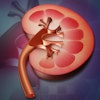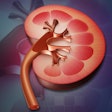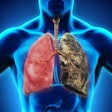Sedentary behavior is associated with increased calcium deposits on CT scans, according to a study of more than 2,000 patients published in JACC Cardiovascular Imaging.
Part of the ongoing Dallas Heart Study, the analysis is among the first to correlate sitting time with atherosclerotic buildup in the heart, said researchers from the University of Texas Southwestern Medical Center in Dallas.
Coronary artery calcium (CAC) scoring with CT revealed that each additional hour of daily sedentary time is associated with a 12% higher likelihood of calcification, according to senior author Dr. Amit Khera, an associate professor of internal medicine and director of preventive cardiology (JACC Cardiovasc Imaging, April 13, 2016).
For their study, the researchers asked approximately 2,000 participants in the Dallas Heart Study to wear a device that measured their activity levels over a week's time. The results showed that participants spent an average of 5.1 hours sitting each day, but only an average of 29 minutes performing moderate to vigorous physical activity.
"We observed a significant association between increased sedentary time and coronary artery calcium," Khera said in a statement accompanying the study. The associations were independent of exercise, traditional cardiovascular risk factors, and socioeconomic factors.
The results suggest that increased subclinical atherosclerosis as seen in calcium deposition is one of the mechanisms through which sedentary behavior increases a kind of cardiovascular risk that is distinct from the protective power of exercise, the group concluded.




















